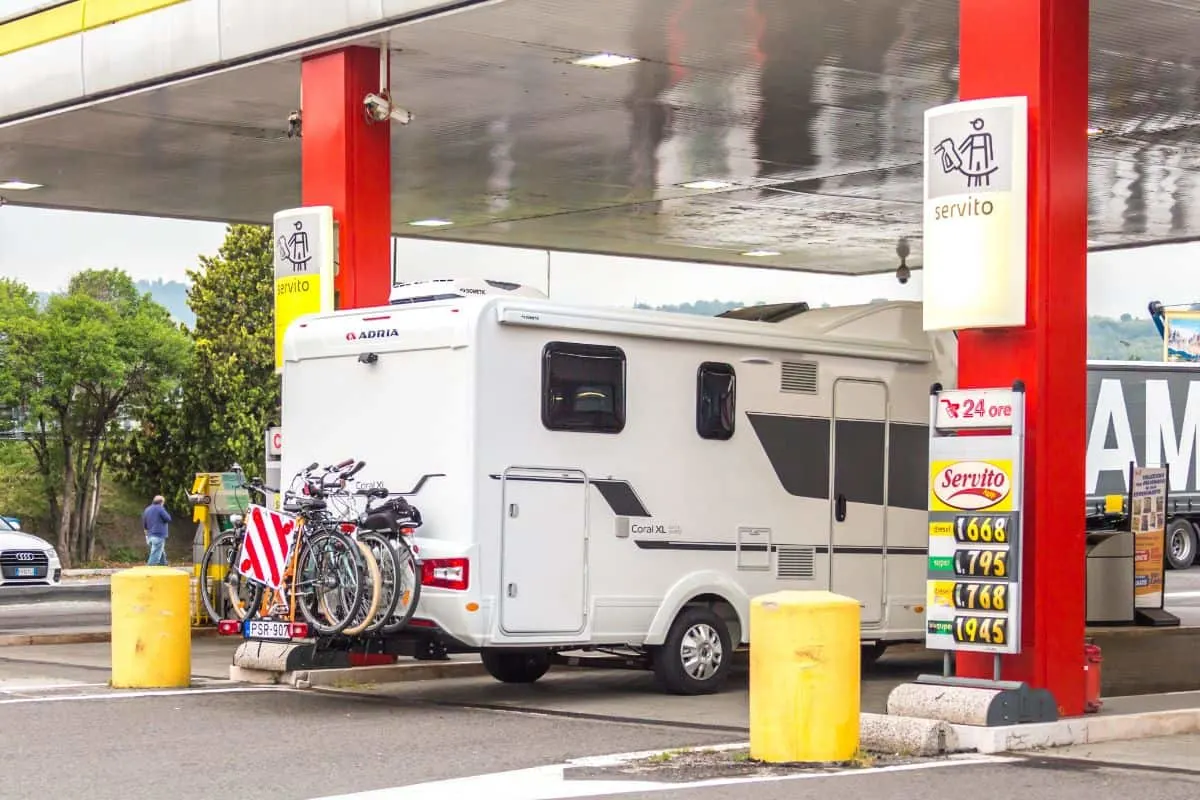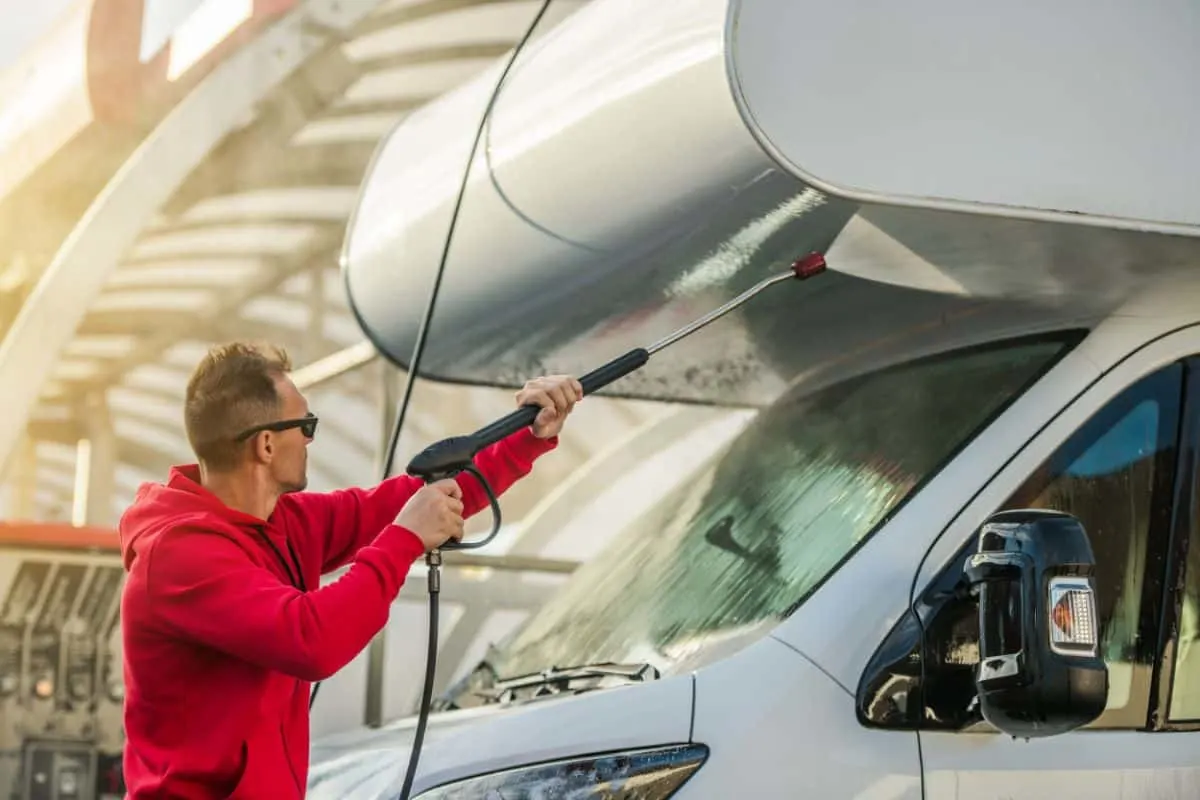
Calculating the annual ownership costs of an RV will be largely dependent on the size of the RV and how often it is used. Owners will need to consider storage fees, gasoline, maintenance, and parking fees when they compute the cost of ownership, as well as the cost to pay for the RV itself.
RVs are becoming increasingly popular as many Americans are able to adjust their schedules to work from anywhere. Unfortunately, many people have purchased these vehicles only to discover several weeks later that they come with a lot of hidden costs of ownership. Each of these costs will vary based on the owner’s lifestyle, the usage amount of the RV, and the size of the RV, however.
Storage Fees
One of the first questions that many new RV owners are confronted with is where to store their new vehicles. If your home doesn’t have a designated area for parking an RV, then you’ll have to create one. Before you start pouring concrete, however, you may want to check the restrictions that your HOA may have on parking RVs on your property.
Many neighborhoods expressly forbid these vehicles from being parked on the street, and those that do allow them to be parked on a property typically require that they be under some kind of cover.
If you cannot store the vehicle on your own property, you will need to pay to have it stored elsewhere. RV storage fees can run anywhere from $50 to $500 or more a month depending on where you live, but most people will pay around $100 to $200. In some areas, you may want to reserve a spot before you decide on making a purchase; slots can be hard to come by in some RV storage parks.
Also be aware that if you plan to take the RV on a trip, you will still need to pay for the storage spot if you want to keep it available for when you return.
Gasoline

While actual mileage on these vehicles can vary, as a general rule the larger the RV the more gas it will need. It’s not uncommon for RVs to get less than ten miles to the gallon, and many larger models will only get three or five. If you plan to travel extensively in the RV, you need to be aware that gas costs will add up very quickly.
If your plan is to live out of the RV for extended periods of time, you may want to consider ways to move the vehicle less in order to reduce gas costs.
If your RV generates power from a gasoline generator, you will need to think about the costs of running it. Of course, these costs are very dependent on what type of appliances you’re running in the RV. If you stay in RV parks with power hook-ups, or if you’re able to outfit your RV with solar panels, you will be able to greatly reduce this cost.
Parking and Overnight Fees
Many RV owners do not realize that it is not free to park your RV in most places. While it may be possible to find abandoned parking lots that you can park in for a night or two, staying at most campgrounds will cost anywhere from $25 to over $100 a night. These fees usually cover little more than a spot to park and power, water, and sewer connection.
Be aware that nearly every place that you would want to park your RV will charge. If you are going on a vacation, you likely do not want to spend most of the trip looking for abandoned lots or risk getting chased away by police. You will need to find secure, legal places to park, and nearly all of them will charge you.
This includes national and state parks. In fact, very few of these actually have spots available in the park themselves; most parks will contract out or have RV camping adjacent to the parks.
If you plan on living out of your RV for an extended period of time, it is probably a good idea to spend the time finding an affordable long-term option for where to live. Try looking for private property owners who will be open to letting you park on their property for a month or two.
Maintenance

Maintenance on RVs can be one of the most difficult costs to predict. RVs essentially have all of the maintenance problems of both a car and a house. While brand new RVs will tend to come with warranties that cover most maintenance issues, parts on the vehicle will eventually wear out, usually after the warranty runs out.
Parts for an RV can be pricey, with many of them needing to be specially ordered. Furthermore, inside the RV you will need to think of maintenance for the appliances; ovens and refrigerators will eventually wear out and need to be replaced.
Insurance and Registration
Just like any other vehicle that you buy, RVs will need to be registered and insured. Registration in many states is based on the weight of the vehicle, so be prepared to pay more than you’re used to for your personal vehicle. Insurance can vary depending on how the vehicle is stored, how often it is used, and how much coverage is desired.
A word of advice: if you can afford it, opt for full coverage on the RV. These vehicles are targets for thieves in many areas, who know how to resell them quickly. Full coverage insurance will replace the RV in the event of just about any type of catastrophe.
